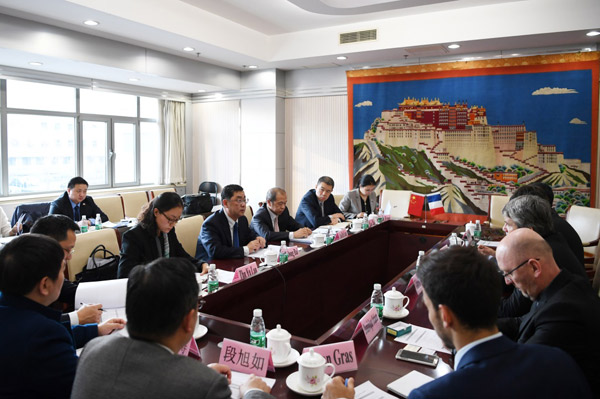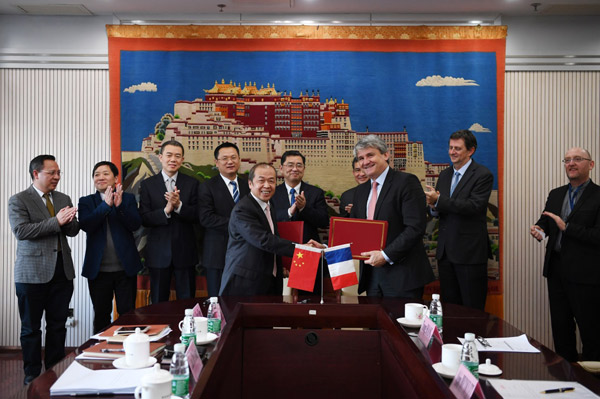

China-France cooperation in the involvement and implementation of ITER Project and research on frontier nuclear fusion technologies has produced positive outcomes and paved the way for stronger bilateral cooperation in science and technology. To further promote bilateral practical cooperation in nuclear fusion, the French Alternative Energies and Atomic Energy Commission (CEA) delegation visited the Ministry of Science and Technology on 9 February for a consultation on the joint development of China-France Joint Research Center on Nuclear Fusion.
The five-member CEA delegation was led by Gabriele Fioni, head of the CEA Department of International Cooperation. Other members of the delegation include head of the nuclear fusion institute Alain Becoulet, Nuclear Counselor at the French Embassy in China Dominique Ochem and their assistants. For the Chinese side, Director General of the Department of International Cooperation Ye Dongbai, Director General of ITER China Luo Delong, Deputy Inspector of the Department of International Cooperation Xu Jie and Deputy Director General of ITER China Sun Jian attended the meeting.
The two sides applauded the positive results of bilateral cooperation on nuclear fusion, and shared the view that with the deepening of cooperation, there is huge potential for China-France cooperation in plasma physical experiment, performance testing and inspection of ITER procurement package, joint ITER operation testing, nuclear fusion technologies, cultivation for professionals and other fields. To further promote practical cooperation, the two sides will build the China-France Joint Research Center on Nuclear Fusion on the basis of long-term stable cooperation. The project will be led by ITER China on the Chinese side and CEA on the French side. They will work together to draft the agreement for the establishment of the joint research center and make the relevant preparations.
During the meeting, ITER China signed an MOU on Building China-France Joint Research Center of Nuclear Fusion with CEA under the authorization and witness of the Department of International Cooperation, which will serve as the basis for negotiating the formal agreement. Then, after agreeing on the text of the agreement, the two sides will complete their own domestic procedures for approval.

